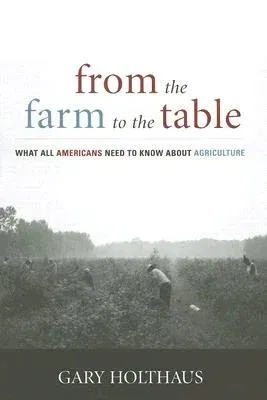As with other areas of human industry, it has been assumed that
technological progress would improve all aspects of agriculture.
Technology would increase both efficiency and yield, or so we thought.
The directions taken by technology may have worked for a while, but the
same technologies that give us an advantage also create disadvantages.
It's now a common story in rural America: pesticides, fertilizers, "big
iron" combines, and other costly advancements may increase speed but
also reduce efficiency, while farmers endure debt, dangerous working
conditions, and long hours to pay for the technology. Land, livelihood,
and lives are lost in an effort to keep up and break even. There is more
to this story that affects both the food we eat and our provisions for
the future. Too many Americans eat the food on their plates with little
thought to its origin and in blind faith that government regulations
will protect them from danger. While many Americans might have grown up
in farming families, there are fewer family-owned farms with each
passing generation. Americans are becoming disconnected from
understanding the sources and content of their food. The farmers
interviewed in From the Farm to the Table can help reestablish that
connection. Gary Holthaus illuminates the state of American agriculture
today, particularly the impact of globalization, through the stories of
farmers who balance traditional practices with innovative methods to
meet market demands. Holthaus demonstrates how the vitality of America's
communities is bound to the successes and failures of its farmers. In
From the Farm to the Table, farmers explain how their lives and
communities have changed as they work to create healthy soil, healthy
animals, and healthy food in a context of often inappropriate federal
policy, growing competition from abroad, public misconceptions regarding
government subsidies, the dangers of environmental damage and
genetically modified crops, and the myths of modern economics. Rather
than predicting doom and despair for small American growers, Holthaus
shows their hope and the practical solutions they utilize. As these
farmers tell their stories, "organic" and "sustainable" farming become
real and meaningful. As they share their work and their lives, they
reveal how those concepts affect the food we eat and the land on which
it's grown, and how vital farming is to the American economy.

